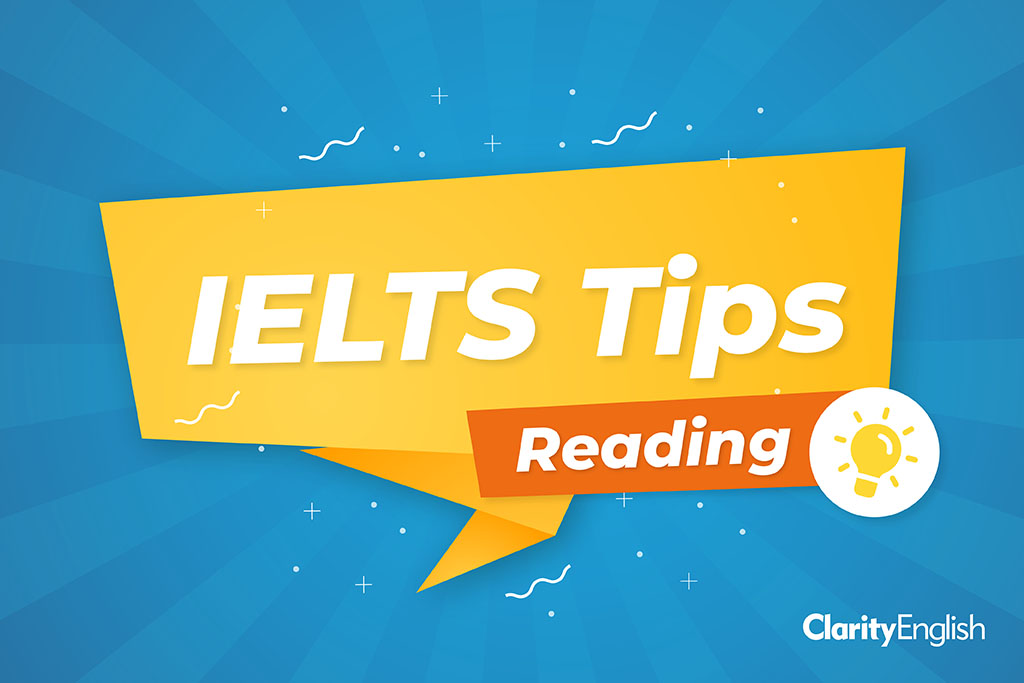A couple of years ago, the Clarity team brainstormed ways to best help IELTS candidates, alongside Road to IELTS, which we co-publish with the British Council. We decided to design an IELTS prep app that would release one piece of IELTS advice per day for 30 consecutive days. That way, candidates would have time to consider each tip, internalise it and put it into practice. So we approached IELTS teachers at schools and universities around the world, as well as other IELTS experts. They sent in a wealth of useful advice which we programmed into the app.
Unfortunately, we found that candidates preferred to cram the tips all at once, and they found the drip feed approach frustrating. That was the end of that project, but rather than let all this expert knowledge go to waste, we have decided to put it directly into the hands of you, the teacher. We have pooled the top four pieces of advice for each skill and added links to prep videos and handy fact sheets. Please feel free to copy these tips and use them in any way you like, and to photocopy the fact sheets for your students. The first skill we’ll look at is Reading.
1. Key facts
SM, IELTS tutor, Hong Kong
Here are four facts for you to bear in mind as you approach IELTS Reading:
1. You have 60 minutes to answer 40 questions. That means 90 seconds per question, including reading time! So you must not waste precious time on questions you don’t see the answer to. Skip them, move on and come back to them later.
2. Questions are usually in the same order as the answers in the text, i.e. you will find the answer to question 1 earlier in the text than that to question 4. Keep this in mind as you look for answers.
3. The reading passages generally go from easier to harder, and so do the questions. So don’t panic if you find the later texts and questions more difficult — they are supposed to be!
4. Finally, if you’re not sure of the answer, it’s important to guess. There are two reasons for this: (a) you do not lose points for putting the wrong answer, so there is no downside. And (b) leaving spaces can get you into trouble as you might write a correct answer in the wrong place later.
2. The task types
GS, British Council manager, Thailand
If you do only one thing to prepare for IELTS, it should be making sure you understand the task types – and this is especially true for the Reading paper. No matter how many English exams you have done at school, there will be task types in IELTS you haven’t seen before: sentence completion, matching headings to paragraphs, Yes / No / Not given, flow chart completion. It takes a while to get your head around the concepts behind these question types, and that is time you need to invest before the IELTS test day. Get started by looking at the Free Version of Road to IELTS where there are explanations, advice from British Council IELTS teachers and, most importantly, practice activities.
3. Be precise!
YP, IELTS teacher, UK
In the Reading test, you need to be very precise when answering the questions. For example, let’s say the question paper asks you to complete the phrase ‘In the…’ and the answer is ‘morning‘. When you write the information on the answer sheet, only ‘morning’ will be marked correct. If you write ‘the morning’ or ‘in the morning’ you will not be given a point (despite the fact that you know the answer). Note that this also applies to the Listening test.
4. Don’t lose points… pointlessly
BD, IELTS teacher, Portugal
The clock’s ticking away… 50… 55 minutes… You need to spend a little time tidying up your answers! Make sure your singulars and plurals are correct. Check your tenses. Make sure you’ve used the right number of words (some questions specify NOT MORE THAN THREE). In those last few minutes, you might have hit a wall where you can’t answer any new questions, but you can make sure you didn’t lose any careless points along the way. Give yourself the best possible chance by taking five minutes at the end of the Reading test to check your work.
Finally:
Watch this really useful British Council video on IELTS Reading.
Download this handy fact sheet on IELTS Reading.

